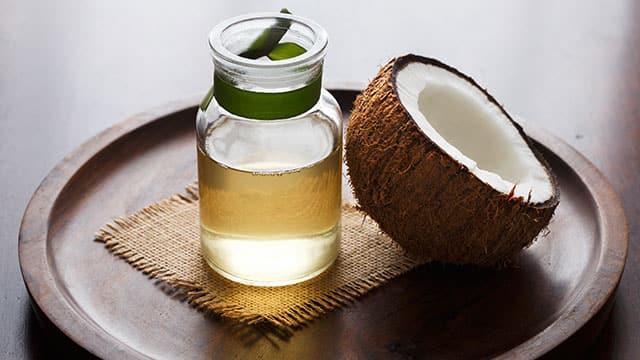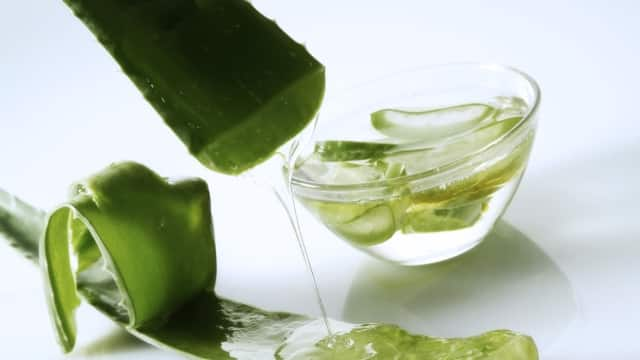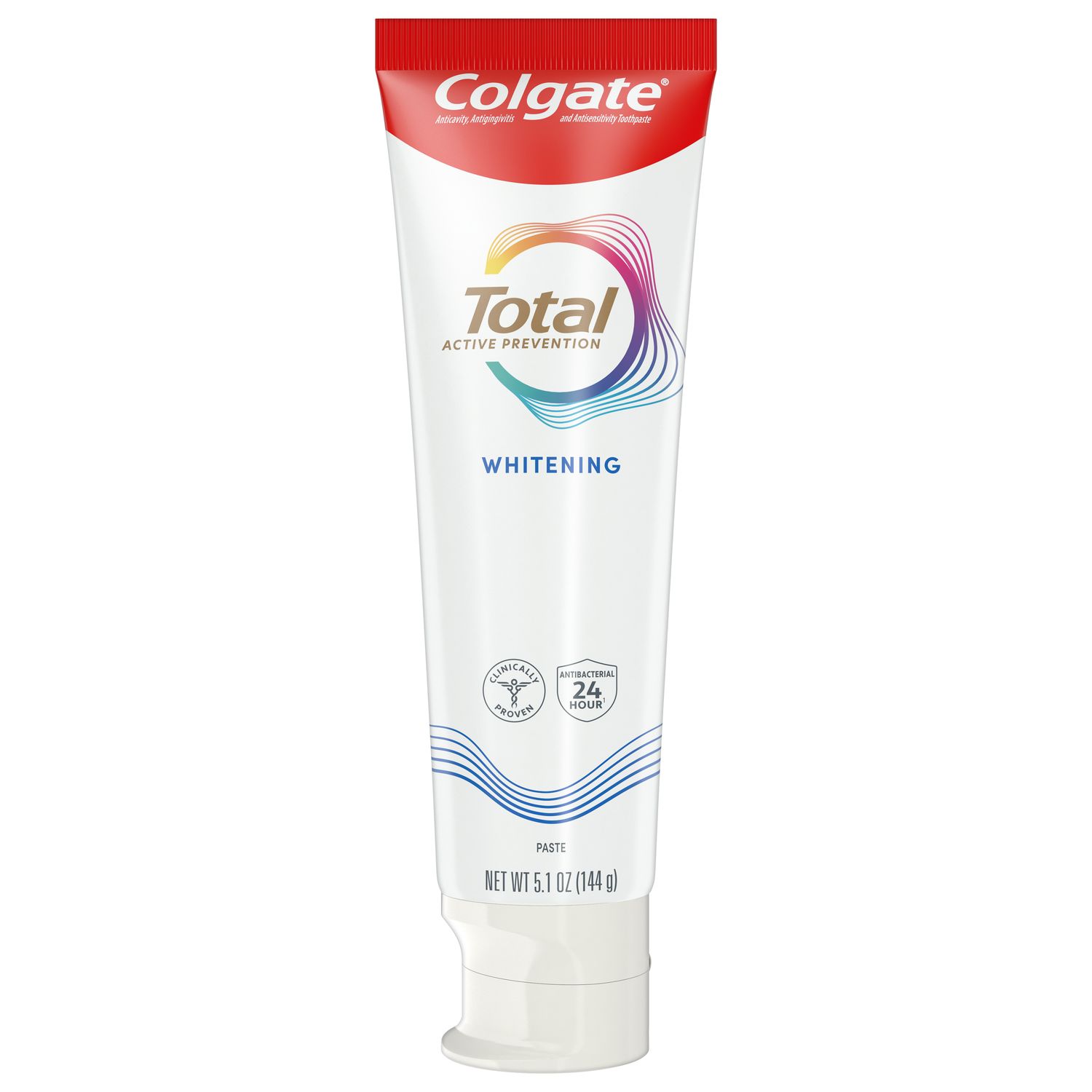-
-

FLUORIDE
What Is Stannous Fluoride Toothpaste?Discover what is Stannous Fluoride Toothpaste and its importance to prevent cavities and other oral health problems.

TEETH WHITENING
Whitening toothpaste - hydrogen peroxide vs. carbamide peroxideIf you lose one or more of your front teeth due to injury or decay, you may feel ...
-
Science & InnovationOral Health Commitment
- Oral Health Commitment
- Bright Smiles, Bright Futures
- Educational Resources
- Mobile Dental Van
- Volunteer
- ORAL HEALTH CHECK
- PRODUCT MATCH
- Oral Health and Dental Care | Colgate®
- Oral Health
- Should You Try Coconut Toothpaste?


Coconut oil has become a household staple in recent years for its numerous benefits: as a "healthy fat" for cooking, as a personal care product, and for its oral health potential. Coconut toothpaste and other coconut-based oral care products are on the market, and there's been renewed interest in the ancient practice of oil pulling, often using coconut oil. But should you jump on the bandwagon? Read on—we've got the research right here for you.
Is coconut oil good for oral health?
Followers of natural health remedies are quick to praise coconut oil as a superfood. While it's not as miraculous as some may say, the good news is, studies show that coconut oil may have benefits for your whole mouth's health.
According to a research study published, coconut oil contains medium-chain fatty acids (MCF) such as lauric acid, caproic acid, caprylic acid, myristic acid, and stearic acid in the Journal of Health Research and Reviews in Developing Countries. Lauric acid, the primary fatty acid found in coconut oil, has antimicrobial, antiviral, and anti-inflammatory properties. As of this writing, there aren't many recent studies on using coconut oil for oral health—but what studies we have seen so far show promising results.
Coconut oil is effective in reducing oral microbial load, decreasing plaque and gingival indices, according to a study published in the Journal of Clinical and Diagnostic Research. Another good thing about oil pulling using coconut oil is that it's an affordable, safe, and readily available oral hygiene maintenance method.
Keep in mind that coconut oil pulling should be used in addition to your regular oral care routine—it doesn't replace brushing your teeth, flossing, or any of those essential everyday steps to keep your smile healthy.
Can you make coconut toothpaste at home?
While do-it-yourself recipes for making your toothpaste abound on the internet, you'll be missing out on essential ingredients like fluoride, a mineral that strengthens tooth enamel and reduces the risk of dental decay. So it is possible to make your toothpaste at home, using ingredients such as baking soda, bentonite clay, and peppermint or citrus essential oils. But we don't recommend it.
You can get the benefits of coconut oil toothpaste without doing it yourself—or without missing the benefits of fluoride. You can easily find kinds of toothpaste containing coconut oil in stores or online. Talk to your dentist for recommendations of the best type of coconut toothpaste, mouthwash, and other oral care products to help you reach your oral care goals. With the right products and routine, you'll be on your way to whiter teeth, fresher breath, and healthier teeth and gums.
This article is intended to promote understanding of and knowledge about general oral health topics. It is not intended to be a substitute for professional advice, diagnosis or treatment. Always seek the advice of your dentist or other qualified healthcare provider with any questions you may have regarding a medical condition or treatment.
Related Articles

Selecting dental products
Natural Toothache ReliefMost toothaches are caused by sensitivity to the nerve (pulp) of the tooth due to decay, injury to the tooth, and infection.… Read more at Colgate.com

Selecting dental products
Aloe Vera Toothpaste: What are the Benefits?Why use Aloe Vera Toothpaste? Aloe Vera is known for its benefits in controlling bacteria that causes cavities than other commercial toothpaste.

Selecting dental products
Should You Use A Toothbrush Cover?Germs from your mouth and your bathroom can transfer to your toothbrush. Can using a toothbrush cover reduce the amount of bacteria on your brush?

Selecting dental products
Should You Try Coconut Toothpaste?Should you seek oral care products that contain coconut? Visit Colgate IN and learn more about the health benefits of coconut for your oral health.
Related Products

Power away plaque with Colgate Total Battery Powered Toothbrush. This battery operated toothbrush for adults fights the root cause* of cavities, plaque, gingivitis, bad breath, tartar buildup**, and stains***. Plus, this battery toothbrush has a built in 2 minute timer and features two cleaning modes, Sensitive and Regular, to cater to your unique oral care needs.

Colgate Total Active Prevention Whitening Toothbrush is a soft toothbrush with charcoal infused spiral and Floss-Tip bristles (1). This soft bristle toothbrush fights the root cause* of cavities, plaque, gingivitis, bad breath, tartar buildup**, and stains*** and also helps remove surface stains to prevent stain buildup.

The Colgate Total® Active Prevention Foaming Clean Soft Bristle Toothbrush is specially designed to tackle the root cause* of cavities, plaque, gingivitis, bad breath, tartar buildup**, and stains***.

Colgate Total Whitening Toothpaste fights bacteria, the root cause of many oral health issues such as gingivitis, tartar, sensitivity, weak enamel, bad breath, and cavities.

Helping dental professionals




